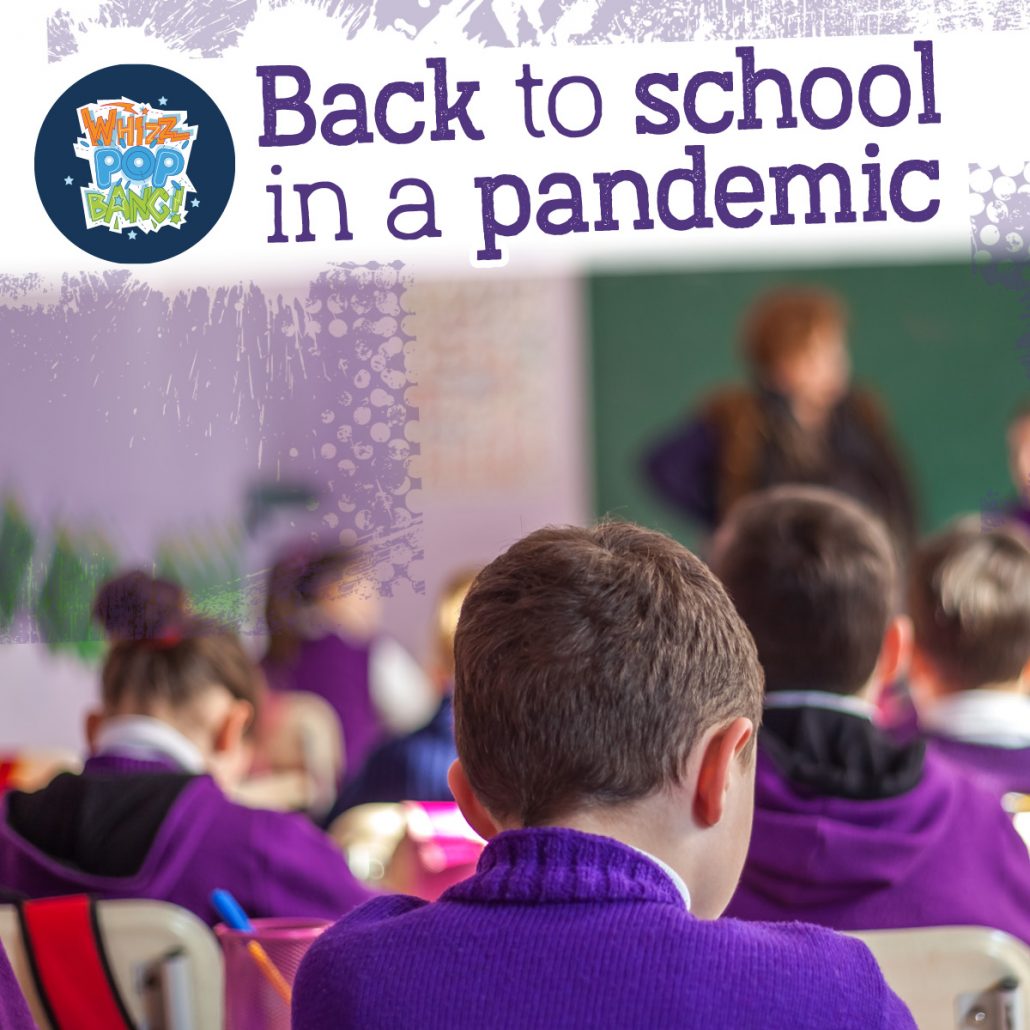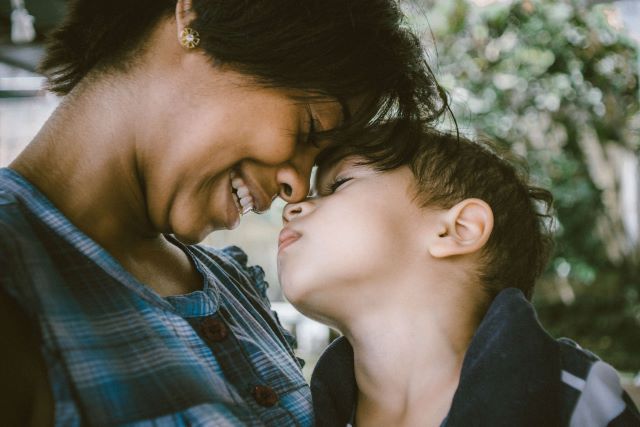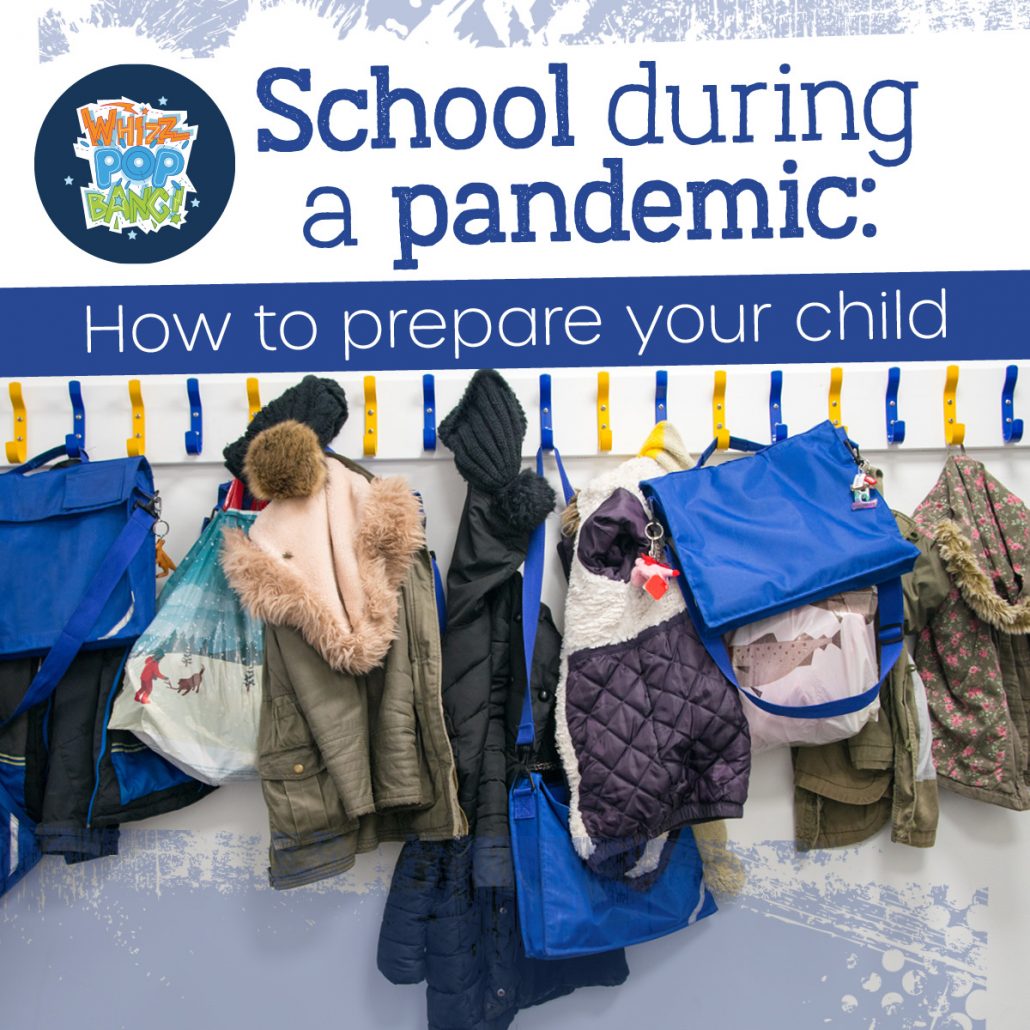By Helly Douglas
September is almost here which can only mean one thing: it’s back to school time! But preparing for the new term is a little more complicated in 2020. As well as shelling out on school shoes and packing pencil cases, there’s also the impact of the ongoing COVID-19 pandemic to consider.
The latest government advice states that “all pupils, in all year groups, will return to school full-time from the beginning of the autumn term”, so many of us are wondering how to prepare our children for going back to school during a worldwide pandemic.
It’s natural for us all, parents and children, to feel a range of emotions about the start of a new term during this unusual time. We might be excited about our children seeing their friends and returning to learning in the classroom, but also worried about health risks and changes to normal school life.
We asked childhood mental health expert Dr Naira Wilson for her advice on how to help your child feel ready to walk back through the school gates.

1: Talk about how school will be different
There’s a fine balance between preparing your child and depressing them with all the things they can’t do. Talk calmly and factually about what it will be like when they return. Changes are different, not bad.
Naira suggests you can help your child be curious about the changes. “Let them wonder what things will be like rather than thinking it will be good or bad.” They can tell you whether their predictions came true after their first day.
Read school communications together and note important information. It’s okay to feel in the dark or not remember all the changes. This shows them that everyone is learning a new way of schooling – even the teachers.
2: Focus on what will stay the same
Whilst there will be plenty of changes, many things continue as usual. They will still complete activities and games, see their friends and be taught by a teacher. Reminding your child of the normal features of school will reassure them they are returning to a familiar place.
Naira recommends talking about how long it took for lockdown to feel familiar. “We all went through a process of adjusting to the change,” she explains. “Our bodies slowly get used to something new until we feel comfortable again. Going back to school is another change we will get used to.”

3: Help them talk about their feelings
Children don’t share feelings on demand. Look for opportunities to talk when they feel comfortable. This could be over a meal, at bedtime, cuddled up watching TV or when out walking. Listen to their worries, even if they seem insignificant. Minor things, like which toilets to use, can feel huge to them.
Guessing and wondering how they’re feeling are great ways to begin a conversation. Sometimes children can’t articulate their emotions. Be confident with your guesses. If you’re right, they will feel you understand them. If you’re wrong, they’ll want to explain why. It shows them that parents can misunderstand sometimes – and help you find out what the real problem is.
4: Be honest about what is happening
If children know why it’s important to socially distance and wash their hands, it’s easier to get them to do it. Talk factually about COVID-19, without focusing on the risks – we’ve got more great tips from Naira on how to tackle conversations around coronavirus here. If you don’t know the answer to a question, suggest you can find out together.
Whilst you’ll want to show that you’re positive about their return, you don’t need to pretend everything is normal. Naira says, “Parents need to be honest. They can say, ‘I’m worried too because I don’t know what’s going to happen.’ It’s normal to feel worried sometimes.”

5: Involve them in preparing for school
Children enjoy helping to get things ready. Check your school’s latest guidance and make a list for them to tick off. Let them pack their bag (with your help) so they know where everything is when they’re at school.
Naira suggests looking for ways to give them a sense of more control over the situation. Could they make a ‘how to’ help sheet for students who will return after them? Encourage them to see themselves as leading the way for other children.
Are you feeling anxious? Children are quick to pick up on our emotions. At school drop off, smile and be positive. Help them have a great start to their first day back.
6: Stay calm and positive
“This isn’t a whole new approach to parenting,” Naira explains. “We are always preparing our children for change. Be confidently uncertain about not knowing all the details.”
Once your child has returned to school, you’ll be surprised how quickly they adapt. The strange changes will seem normal before long. However, if your child feels anxious about returning to school, discuss any issues with their teachers and see if they can help. If your child’s feelings don’t subside, or if they get worse, contact your GP to discuss your worries.

Whizz Pop Bang is a top-quality, gender-neutral, advert-free science magazine for families everywhere. Each issue is packed with experiments, activities, amazing facts, puzzles, jokes, riddles and more. Find out more here!
Dr Naira Wilson is a Chartered Clinical Psychologist who specialises in childhood mental health.
